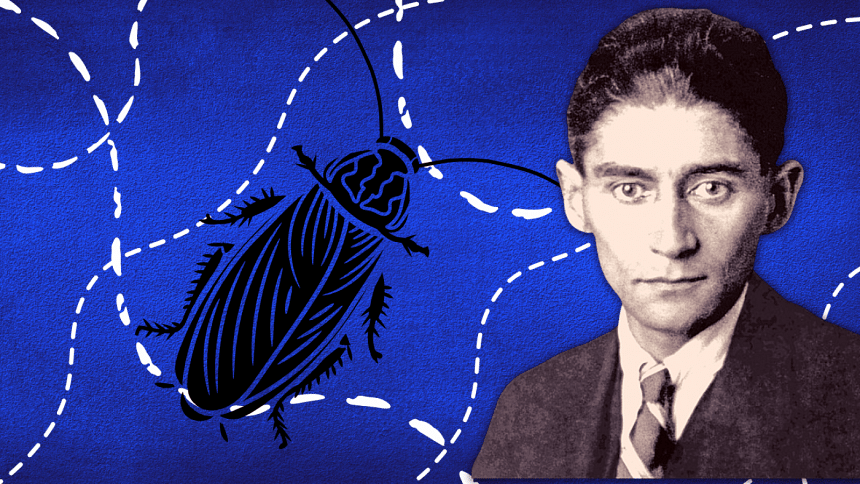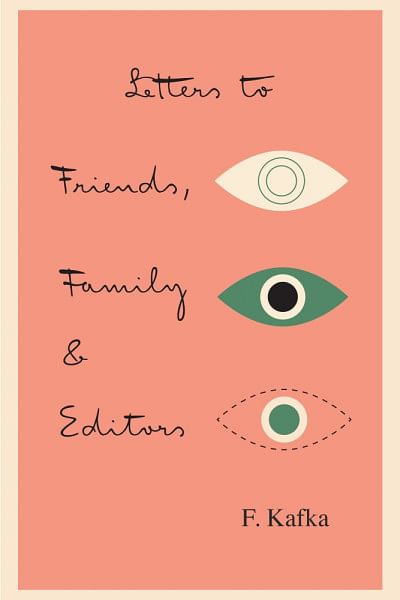Absurdism, reality, and Franz Kafka

Kafka's world is chaotic. It is a world that is often found lurking in the darkest corners of our minds, shrouded by melancholy and devoid of happiness. On the occasion of his 139th birth anniversary today, I wanted to revisit Kafka's world, and see how he managed to paint such a realistic picture of life in the most absurd, often farcical, ways.
This world, defined by Kafka and inhabited by us, is one where we feel sorrow, loss, feel unwanted, insecure, and almost every other human emotion that leads us into believing that our life has no purpose and that it is better to put an end to it. A world, where we will end up at least once in our lives, even if it is for a brief period.

In his novella, The Metamorphosis (1915), Kafka puts forward the idea of what it's like to be forgotten. He shows us how quickly one's existence can become an inconvenience for their loved ones. A family that cared for and depended on Gregor Samsa wouldn't even hesitate to wish his death the moment they realised he was no longer needed to provide for the family because he had transformed into a bug.
The Trial (1925) takes the absurdism a step further where the protagonist, Josef K, is arrested and then tried in court for a crime that he isn't made aware of. The novel portrays how ludicrous the bureaucratic process can be with its quirky and dark parody of the legal system.
The only bit of realism one might notice in Kafka's work is seen in his personal writings, mostly the letters he wrote to his fiancee, his lover, and his father. While his literary works were more symbolic, the letters he wrote had a more personal touch. They were straightforward, meant for recipients whom Kafka had known personally.
Even then, his words hit hard, and often close to home. And there's no better testament to this than the letter Kafka wrote to his father.
Hermann Kafka was anything but loving. Franz refers to him as a tyrant in his letters, recalling the times his father would continuously humiliate and belittle him in his early childhood. Hermann was also against his son becoming a writer. Addressing this, Franz had this to say in his letter, "When I began something which didn't please you and you threatened me with failure, my awe for your opinion was so great that failure was unavoidable—I lost the confidence to do anything. I was unsettled, doubtful".

Perhaps the saddest part is that Hermann never got to read these messages. Kafka's mother, whom he had asked to deliver the letter to his father, refused to do so. She merely returned it to Franz, fearing that her beloved husband would resent her for even accepting those 45 pages.
Helpless under powerful legal and political authorities, voiceless in front of a strict father, unloved by his own family, and dissatisfied with his own work—Kafka's world was moulded and given shape by all these and much more.
Modern literature refers to Kafka's work as absurdist fiction. Yet, when going through them, his work seems to resonate with so many of us. His stories, no matter how bizarre their plots, are always ones that we can connect to.
The lines between absurdism and realism are often blurred in Kafka's work. It's as if Kafka had taken inspiration for his writing by observing ordinary people like us, our mundane lives, and the demons we fight to stay alive. As Kafka himself once said, "The task of literature is to reconnect us with feelings that otherwise might be unbearable to study, but which desperately need our attention."
In truth, there is nothing absurd about his work. The only thing absurd is this world, and the only individual who could put this absurdity into words was Franz Kafka.
Faisal Bin Iqbal is a sub-editor & the digital coordinator for SHOUT, The Daily Star. You can reach him at [email protected].

 For all latest news, follow The Daily Star's Google News channel.
For all latest news, follow The Daily Star's Google News channel. 






Comments